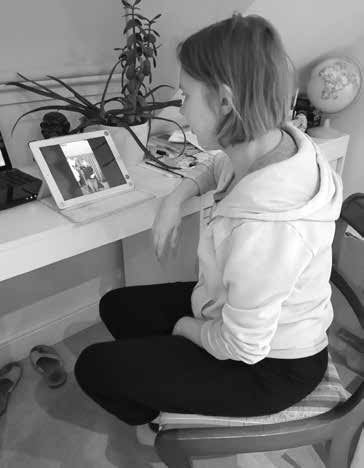Covid-19 has highlighted how important communication is to a good quality of life. Alix Lewer describes how an inclusive communication charity kept people in touch.
I truly believe that communication skills are vital when supporting someone with a learning disability in any setting. A skilled communication partner and inclusive communication environment can transform their lives from existence to fulfilment. Sounds radical but I’ve seen it happen.
OK – I’ll admit something first. As a speech and language therapist, I’m totally biased. As founder of an inclusive communication charity, even more so.
But don’t judge me. There is substantial academic research to back me up and – more importantly – an awful lot of people with learning disabilities and their families say the same.
Nothing I’ve seen during the pandemic has changed my mind. On the contrary, everything has strengthened my conviction that there is simply not enough awareness of the value of communication or investment in embedding inclusive communication skills training across health and social care.

Strike a chord: Rosie Mumford takes part in Include.org’s online choir from home
Crazy Covid changes
Covid-19 has been a crazy time for communication for all of us. Every normal interaction has been affected in one way or another.
This runs from being forbidden to hug or hold hands with the people we love to covering our faces, and from struggling to work out our choices from reams of impenetrable government guidance to relying on digital interaction to meet.
Covid-19 has highlighted how integral all forms of good communication are to daily life and the quality of that life.
Suddenly, in March 2020, the world was Zooming. Despite limited resources, Include.org did too. Training went on hold, but the Include Choir (an inclusive communication and awareness-raising choir for people with and without learning disabilities or autism) went online, offering free Facebook Live sessions to all, and quadrupling our Facebook membership.
The weekly Virtual Tea Break was started as we noticed how the absence of social interaction affected our members. This facilitated news-sharing session and accessible newsletter proved hugely popular. People craved contact and genuinely needed the chance to connect and share those little triumphs which made the lockdown day worth living.
We all need to tell our story – even when words and speech are tricky.
By the end of the second lockdown, we were running four weekly inclusive communication sessions. This included a Sing Sign and Smile Session, which allowed members and staff to practise Makaton and raised people’s mood.
We also held a Chat & Chill session, which developed as we watched people’s anxiety grow while struggling to process complex issues such as lockdown and vaccination.
We used visual resources such as Talking Mats and accessible information to assist understanding, followed by mindful body percussion, which involves making musical sounds with the body to help regulate mood.
To meet the needs of people who had nothing else in their week thanks to service closures and care package cuts, we provided more activities online and through the post – and the need kept growing.
From two staff and 15 volunteers, we now have 50 volunteers and eight (very) part-time staff. We reach members from across the UK and train volunteers from across the world.
We received a Surrey Lieutenancy Award and were finalists in the Breaking Down Barriers category in the Learning Disabilities and Autism Awards. Sounds like a fairy tale, right? And yet…
We lost touch with many of our pre-Covid members because, despite phone calls, pleas from parents and offers of volunteer support, people in care were and are not supported to get online.
There are many reasons, such as a lack of staff confidence, reduced staffing levels and no management support, or simply no understanding of the value of inclusion, interaction and maintaining skills.
Assumptions and choice
People were assumed to be unable to interact online although we found, with skilled family or staff support, even those with significant levels of learning disability could engage in sessions.
That old chestnut choice was regularly wielded as an argument by staff: “She chooses not to join the sessions.”
How can someone make an informed choice to join something they have never experienced and do not understand? It’s not just in healthcare that we’ve seen the principles of the Mental Capacity Act take a battering, with subsequent loss of autonomy, skills and quality of life.
As we have restarted face-to-face alongside digital services, we are delighted to slowly reconnect with old friends but I do wonder what effects we will see from their enforced exclusion over time.
Inclusive communication and Mental Capacity Act training are needed more than ever and, whatever the difficulties of the funding landscape, we will deliver it.
We are working with our members to rebuild our training content and will be rolling out a range of innovative training programmes in 2022 and beyond.
https://include.org/the-include-choir
Alix Lewer is the founder of Include.org
